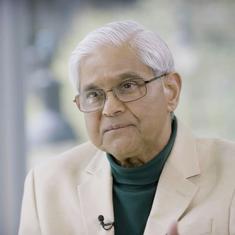On February 9, the police and animal welfare activists conducted raids in Pallavaram in southwest Chennai, rescuing at least a dozen cats from two settlements of a nomadic community. The cats had been captured to be sold to roadside eateries and pushcart vendors that would have served their meat as mutton in biryani to oblivious customers, alleged Shiranee Pereira, co-founder of the non-profit People for Animals.
Pereira had received calls from a number of distraught cat owners claiming their pets were missing. “Lots of cat lovers were in a state of depression,” she said.
This isn’t the first such operation her group has been involved in. In 2016, People for Animals had been involved in raids on the settlements of a nomadic tribe known as the Narikoravar, who had been capturing cats with wire loops and nets and selling them to small restaurants, Pereira alleged. So when the complaints grew, she added, the activists decided to go in again.
Tribe of hunters
The Narikoravar are a dwindling community. There are only around 200 families left in Chennai now, said Rajkumar, former president of Tamil Nadu’s Narikoravar community. They originally lived in forests and were hunters. Now, Rajkumar said, most of them make a living collecting paper and plastic from garbage cans and selling them to waste paper shops, earning less that Rs 100 a day. In 2016, the community was included in the list of Scheduled Tribes in Tamil Nadu.
The Narikoravar are traditionally known to kill feral cats and eat their meat. “Now they have moved to the city, so them killing domestic cats isn’t justified,” Pereira argued. “It is not categorised as food in India. Slaughter that happens anywhere outside a slaughter house is illegal. And more than anything, it’s an act of cruelty. Cats are trapped, kept in little cages and gunny bags.”
Her NGO claims to have rescued around 40 cats in the past two months, with the help of the city police’s intelligence wing. “Usually we have to take the help of the inspector at the local police station,” said Pereira. “This time, I went to the city police commissioner and asked for their assistance. This is the first time the police has reacted with so much sensitivity and compassion for the cause.”
Pereira, however, said no one was arrested for capturing the cats. “They were warned because we decided to go soft on them,” she said. “We wanted the cats alive, that was the priority. We told them that next time, we will have to take action.”
Demand for cat meat
The larger problem, Pereira said, was the demand for cat meat. “There has to be a big demand since they are hunting cats every day,” she said, adding that there was particularly high demand in the Pallavaram area, home to around 100 Narikorava families.
Antony Rubin, an animal welfare activist, said the blame for the sale of cat meat in the city does not rest entirely with the hunters. “Whether shops are selling cat meat, chicken or mutton, they should be transparent about it,” he said. “They are cheating customers since cat meat is used like an adulterant.”
Rubin said the people who pay the Narikoravar to hunt cats often escape the raids. “When they don’t have a job and a thug tells them to capture a monitor lizard or cats, they do it for easy money,” he said, referring to the Narikoravar. “Most of the time they get caught, the main wildlife poacher escapes. These people don’t have money for lawyers and are put behind bars. The name of their community gets tainted even more.”
Marginalised community
However, other activists believes that animal welfare activists and the police should not be raiding the nomadic community. “It is the job of the corporation of Chennai to ensure that shops are licensed and hygienic,” said Sujata Mody, a labour rights activist in the city.
The lack of opportunities to find work that is even moderately remunerative has left the Narikoravar on the margins. “They get work at the lowest levels, as labourers or as housemaids,” Mody said. “What is our government really doing to allow these communities certain space and self-respect? They have their own history, culture and food. The Narikoravar are a gentle people who are very insular. But we are seeking to criminalise their activities.”
Only education will help improve the condition of his poor community, said Rajkumar. “Chennai has lakhs of people. Can’t the government take care of just 200 families?” he asked. “The Narikoravar were not troubling anyone while in the forest but we were pulled out of it. The guns were taken away. Now many don’t even have enough to eat. Soon, our numbers will diminish further and we will become a rare tribe that you need to search for.”









